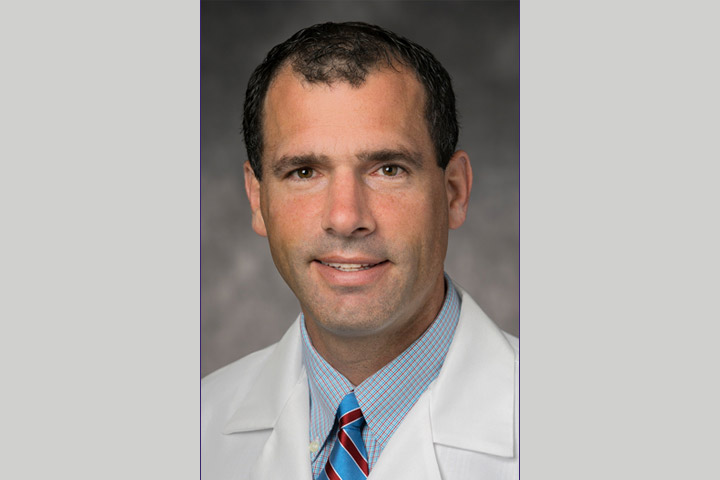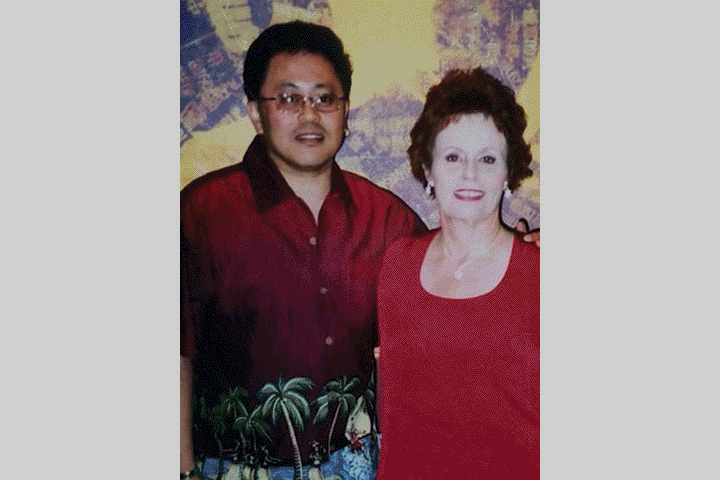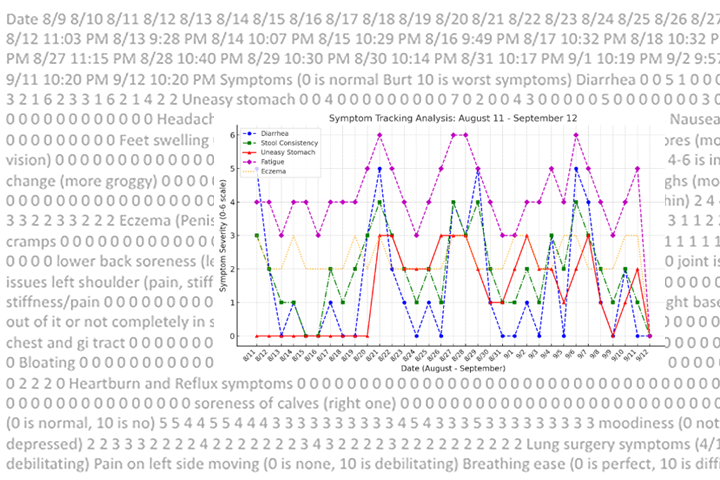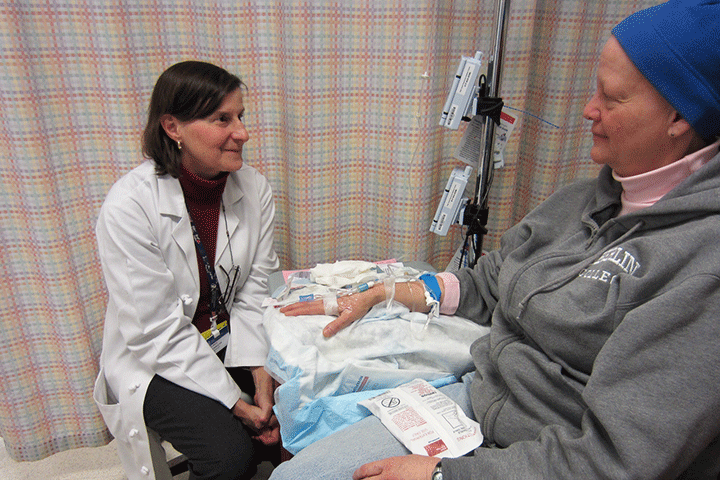Navigating Cold and Flu Season as a Cancer Patient
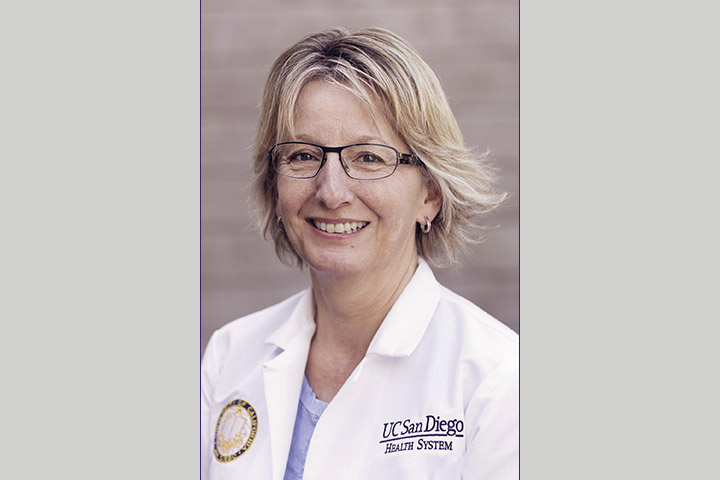
According to the U.S. Centers for Disease Control and Prevention, an estimated 37 million Americans got hit with the flu in 2023, and about half became so ill they paid a visit to their healthcare provider.
Unfortunately, when you have a life-threatening, immune-compromising condition like cancer, cold and flu season can be deadly. “When your immune system is suppressed from cancer, or its treatments, you’re not only more susceptible to infections and viruses, but you’re also at increased risk of complications as a result of such illnesses,” says Francesca Torriani, M.D., Infectious Disease Specialist at UC San Diego Health (California).
’Tis the Season for Sickness
With the holiday season in full swing, more people are gathering in large groups to celebrate. At the same time, experts project that highly contagious viruses, including cold, flu, COVID-19, and respiratory syncytial virus (RSV), are likely to skyrocket.
Just about anyone is vulnerable to respiratory viruses this time of year, and flu activity generally peaks between December and February. But if you’re battling cancer, or caring for someone who is in treatment, you’re at even greater risk of getting sick and suffering from cold- and flu-related complications.
“Cancer patients have a higher risk of contracting viruses and infections because their immune systems are already suppressed from treatment,” Torriani says. Stress—physical, mental, and emotional—may also play a role in susceptibility to infection.
The symptoms of cold, flu, COVID-19, and even RSV are similar and sometimes overlap, but if you have cancer, it’s important to know which illness you’ve got. Once you have an official diagnosis, your doctor can recommend appropriate treatment options, such as antivirals if you have COVID-19 or the flu, and supportive care strategies for the common cold.
Tips to Protect Yourself
If you’re in treatment for pancreatic cancer, or you’re caring for someone who is immunocompromised, taking the following steps may offer some protection:
- Wash your hands. Most viruses spread through respiratory droplets. Rub your nose or eyes with contaminated hands, and boom, you’ve got viral transmission. Sadly, a quick rinse, or light pass with hand sanitizer, isn’t enough to scrub viral cells from your skin. Instead, make sure to wash your hands thoroughly with soap and water for a solid 15 to 20 seconds, enough to make it through the “Happy Birthday” song twice.
- Stay up to date with your vaccinations. Vaccinations are not only safe for patients with pancreatic cancer, they’re also highly recommended. Unfortunately, studies show that people who are immunocompromised from cancer and its treatments do not produce the same response to vaccines as healthy adults. “But staying up to date with your vaccines can help prevent disease if there’s an exposure and also reduce the severity of disease if you get infected,” Torriani explains. Just make sure to get the flu vaccine, not the nasal mist. The mist is a live virus, which could cause flu in vulnerable populations.
- Wear a mask.While you probably don’t need to wear a mask for every occasion, there are some circumstances where wearing a mask is an important source of self-protection. Traveling over the holidays or in the new year? Wear a mask while you’re in a busy airport or train station, or any time you’re in a place with a lot of people that doesn’t have good ventilation.
- Advocate for yourself. If you’re planning to gather with friends and family over the holidays, ask people to stay home if they’re feeling sick with a stomach bug or respiratory illness, or if they’ve been exposed to cold, flu, or RSV. And request that your loved ones test for COVID-19 before joining the event. Testing in advance can help catch folks who are unknowingly carrying a high amount of the virus.
- Beware of foodborne illness. Holiday buffets, appetizers that sit out all day, even shared utensils can be a cesspool of bacteria and pathogens. Stay safe by making sure you wash produce before eating it or using it in recipes, clean plateware, glasses, and utensils thoroughly and make sure to avoid common sources of foodborne illness, such as undercooked meat, deli meat and cheeses left at room temperature, and raw egg products.
- Support your immune system. You can give your immune system a boost by maintaining a regular sleep schedule, drinking plenty of water, eating nutritious foods, including fruits, vegetables, and whole grains, and exercising regularly. Equally important, take steps to minimize stress, which can wreak havoc on your immune system. Strategies like meditation, yoga, and deep breathing can help keep stress levels in check.
What to Do If You Get Sick
If, despite your best efforts, you come down with a bacterial or viral illness, or even if you think you may have been exposed to an infected person, talk to your oncologist. In susceptible patients, respiratory viruses can lead to bronchitis, pneumonia, and difficulty breathing.
“Cancer patients have a higher risk of developing serious complications from flu, COVID-19, and RSV,” Torriani says. “So if you have symptoms of illness—cough, runny nose, fever, sore throat—don’t wait for them to go away on their own. Seek care from your oncologist so you can prevent more severe disease.”
A number of antiviral drugs can help improve your symptoms and reduce your risk of flu-related complications. Tamiflu, for example, can help blunt the effects of the flu virus, but it has to be administered within 48 to 72 hours from the onset of symptoms to be effective. Beyond pharmaceuticals, the treatment for most respiratory viruses, and even foodborne illness, is largely the same: rest, drink plenty of fluids, and treat symptoms like fever and aches and pains with over-the-counter medications like ibuprofen and acetaminophen.
“Most important, be honest and vocal about your needs during treatment and beyond,” Torriani emphasizes.
